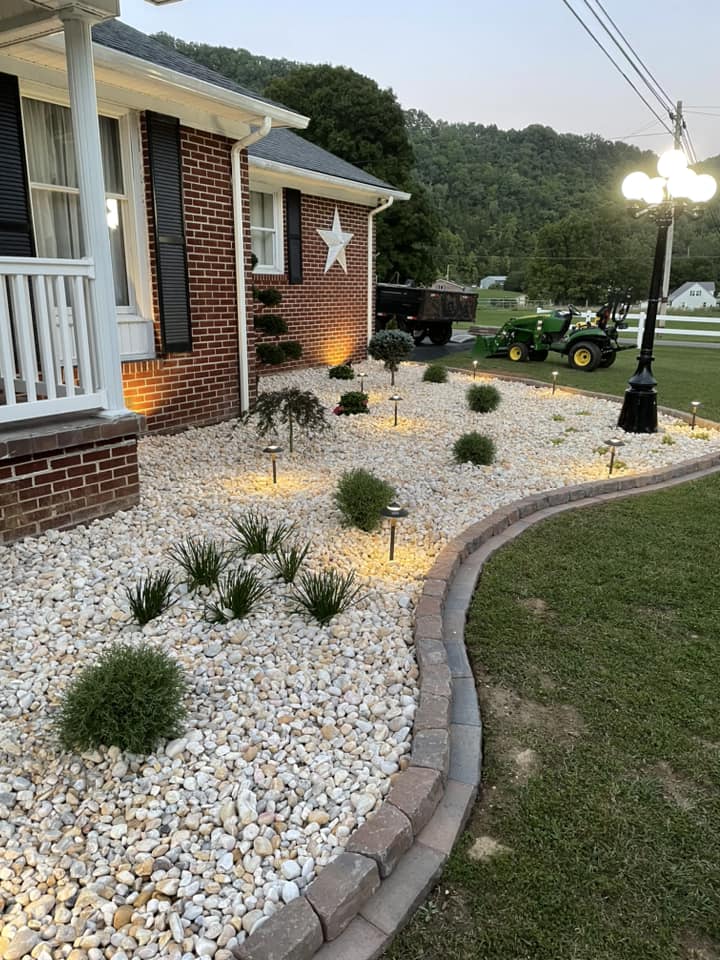
Sustainable Landscaping Practices for a Greener Future Oct 14, 2025
Understanding Sustainable Landscaping
Sustainable landscaping is about creating a healthy outdoor space that supports biodiversity, conserves resources, and minimizes negative environmental impacts. It involves using native plants, efficient irrigation systems, and organic gardening practices. Such approaches reduce the need for synthetic fertilizers and excessive water usage, thus fostering an eco-friendlier ecosystem.
The Role of Native Plants
One of the pivotal elements of sustainable landscaping is the use of native plants. These species are naturally adapted to the local climate and soil conditions, which means they require less water, fertilizer, and pest control. By incorporating native plants into your landscape, you are not only conserving water but also providing a habitat for local wildlife. This practice helps to maintain the ecological balance and promotes biodiversity in your garden.
Efficient Water Management
Water conservation is a cornerstone of sustainable landscaping. Implementing efficient irrigation systems is crucial in reducing water waste. Drip irrigation and rainwater harvesting are excellent methods to consider. Drip irrigation delivers water directly to the plant roots, minimizing evaporation losses, while rainwater harvesting systems collect rainwater for later use. These systems not only conserve water but can also reduce your water bills significantly.
Soil Health and Nourishment
Healthy soil is fundamental to sustainable landscaping. Utilizing organic composts and mulches can improve soil structure, enhance moisture retention, and provide essential nutrients to plants without the need for chemical fertilizers. Composting garden waste and kitchen scraps is a practical way to recycle organic matter, beneficially returning it to the soil. This practice not only enriches the soil but also reduces landfill waste, contributing to a greener environment.
Eco-Friendly Hardscaping Solutions
Beyond plants and soil, sustainable practices extend to hardscaping. Opt for materials with low environmental impact, like reclaimed wood or locally-sourced stone, for patios, walkways, and walls. Permeable paving solutions allow water to seep through, reducing runoff and promoting groundwater replenishment. These environmentally sound choices in hardscape not only enhance the aesthetics but also support the sustainability of your garden.
The Benefits of Sustainable Landscaping
Adopting sustainable landscaping practices comes with numerous benefits. A sustainably designed landscape requires less maintenance, saving you time and resources. Moreover, it can increase the value of your property, as more homebuyers seek eco-friendly alternatives. Most importantly, these practices help in combating climate change and preserving the natural environment for future generations.
Conclusion: Take the Green Step Today
By implementing sustainable landscaping practices, you can enjoy a beautiful garden while contributing to the health of the planet. Simmons Brothers Investments is dedicated to guiding you through this transformative journey, offering expert advice and services tailored to your unique needs. Embrace these sustainable solutions and play your part in nurturing a healthier environment. Whether you are redesigning your garden or starting from scratch, remember that every small step can lead to a greener future for all.
If you're ready to transform your landscape with eco-friendly practices, contact Simmons Brothers Investments today. Together, we can create a vibrant, sustainable outdoor space that you can enjoy while knowing you’re making a positive impact on the environment.
/filters:no_upscale()/media/c66cd5f7-d4ec-4293-aca1-0fed8692f4e2.jpeg)